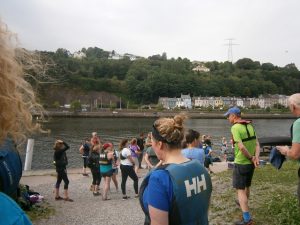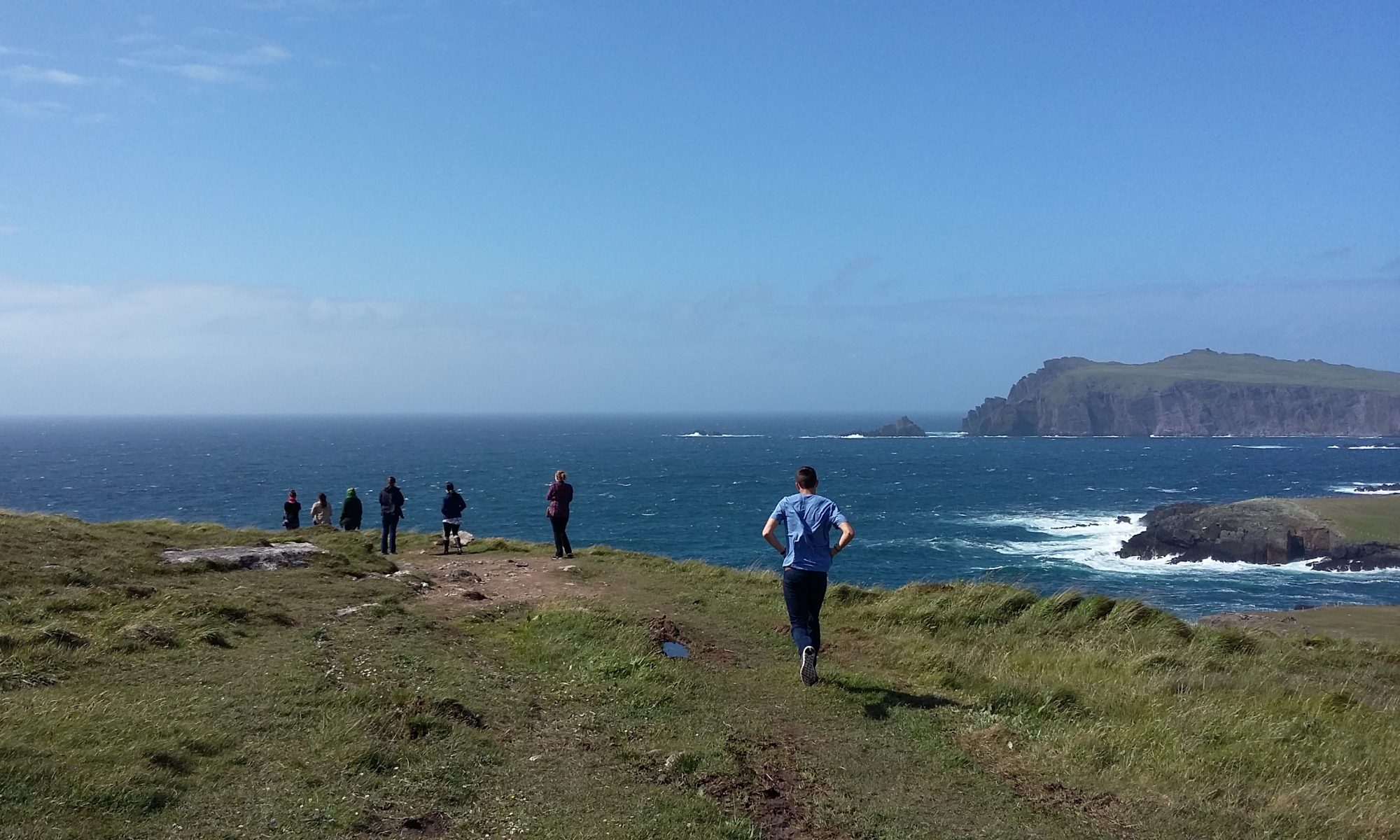
For my birthday in June 2017, I got a Fitbit Charge 2. I particularly wanted a fitness tracker that could monitor my heart rate, because I’m trying to build up my cardio fitness. But my reasons for wanting a fitness tracker go deeper than that. It’s about objective verification of how virtuous and hardworking I am, what a good girl I am, how disciplined I am. I try to work hard and do the right things, but no matter how much I do, it never quite seems to be enough. All too often, ‘enough’ feels out of my reach, some days by a hair’s breadth, other days by miles. Especially on those bad days, when my thoughts are tormented and my emotions are in turmoil, when I feel overwhelmed by the distance between what I am and what I think I should be, seeing my fitness tracker data gives me a bit of peace. When I sync the tracker with the app on my phone and see all the steps I’ve taken that day, all the minutes I’ve been active, the spikes and lulls in my heart rate, the smartphone screen gives me the approval I find it so hard to give myself. The Fitbit app tells me it’s okay to rest now, that I’ve done enough, that I am enough, even if I don’t feel enough. That’ll do, pig; that’ll do.
I get that there is a dark side to this. I know it’s kind of insane to look to some app on my phone for permission to sleep. I also understand the Black Mirror concerns, the fear that digital technology and social media are taking over our lives and causing us to value image over reality. I see all this, but the Fitbit still fills a certain need in me, at least for now, because it seems to offer me clarity and objectivity about myself. I don’t trust my self-perception and I certainly don’t trust my self-evaluation. For good or ill, it helps me to have the data to back up my feeling that I’ve worked hard. But, at least for me, the Fitbit is about more than physiological data. I don’t just want to track my fitness; I want to be the kind of person who tracks her fitness. I want to be disciplined, dedicated and determined, and I want others to see me that way too. It’s easy to dismiss this as hopelessly egotistical and self-seeking. But seeing the objective, unvarnished facts about oneself is important to personal development, physical or otherwise. Similarly, mistrust of our own perceptions is wise if it means we recognise our limitations. The problem is when we start to think the picture is the reality or when we start to think that the data is the whole story. Sometimes it makes sense to demand the data but the trick is knowing that the truth can’t always be reduced to the facts.
The second or third day of wearing the Fitbit, I went rowing with Naomhóga Chorcaí (an activity I heartily recommend, by the way). It was my first time rowing in an actual boat rather than on a machine, and I was eager to see what my heart rate would be like. And, of course, I wanted to add to that all-important ‘active minutes’ total for the big sync reveal at the end of the day. So you can imagine my disappointment when it occurred to me that wearing a fairly large and fairly expensive watch might not be a great idea when learning to row in a cross-hand style. Reluctantly, I took it off.
It took me ages to get the hang of rowing the naomhóg. We were nearly back to the rowing club before I got the rhythm of it. The woman behind me, Diana, had to take the oars and row with/for me over numerous stints before I started being able to copy what she was doing. Once I got the hang of it though, I really didn’t want to stop. The few moments in which I actually managed to keep in time with the others were blissful. The joy of physical exertion, working together, being out on the river Lee in my beloved Cork on a mild summer’s evening – it was truly a beautiful experience. And even though I didn’t exactly take to it like a duck to water, the truth is that even getting into that boat was a huge accomplishment for me. For most of my 20s into my early 30s, I was so fat they might not have had a lifejacket big enough for me, and I would not have been fit enough to pull my weight. I probably would have been too inflexible to clamber into the boat even had I summoned up the courage to try.

Even after huge weight loss and fitness gain, it took me three years to try it out. The first year we took students to row with Naomhóga Chorcaí, physically I could have gone out with them, but I was too scared. I was afraid that I’d look stupid, that I’d ruin it for everyone else by doing it wrong, that I wouldn’t be able to keep up. The second year, I was just a couple of weeks out from an operation to remove my gallbladder, and I was under medical orders not to do stuff like rowing. Finally, the third year, when the students went out with Naomhóga Chorcaí, I had both the health and the courage to go too. That was one of the rare nights when I didn’t need the Fitbit app to tell me that I had done enough. No technology could ever have tracked what really mattered to me about that rowing trip, what it told me about myself. Yes, I am a person with an average sized body and a normal level of fitness who can do most things that average, able-bodied people can do. But much more importantly, I am a person who tries new things even if I might be terrible at them and look stupid. I keep trying even when it takes time for me to learn. I’m glad there are pictures of that evening, but it wouldn’t matter if there weren’t. I don’t mind that I didn’t have the Fitbit on. I know what I did. That’ll do me.

Great article, well done! 🙂
Thanks, John!